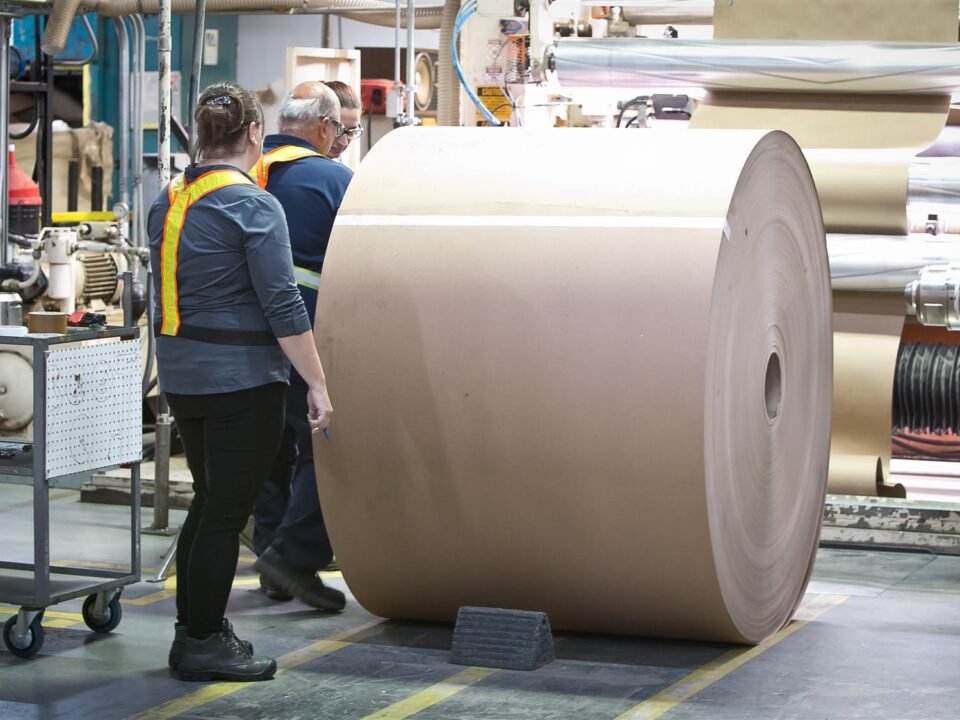
Building Strong Supplier Relationships: The Legacy of Long Falls Paperboard
July 31, 2024
The Future of Paper: Innovations That Are Shaping the Industry
August 15, 2024Lessons Learned: Key Takeaways from Long Falls Paperboard's Journey
The story of Long Falls Paperboard is not just a chronicle of a paper manufacturing company; it's a rich narrative filled with insights into operational resilience, strategic adaptability, and environmental stewardship. Although Long Falls Paperboard is no longer operational, the lessons learned from its journey continue to resonate within the paper and packaging industries, offering valuable guidance for current and future endeavors. This reflection on Long Falls Paperboard's legacy aims to distill key lessons that can help steer business practices in today's ever-evolving market landscape.
Embracing Sustainability as a Core Business Strategy
Long Falls Paperboard was ahead of its time in embedding sustainability into its core operations. The company recognized early on that sustainable practices were not just ethical but strategic, helping to future-proof the business against regulatory changes and shifts in consumer preferences. By prioritizing resource conservation, waste reduction, and sustainable sourcing, Long Falls set a standard that many are still striving to meet today.
Lesson for Today:
Modern businesses can take this forward by integrating sustainability deeply into every aspect of their operations—from procurement to production to distribution. As environmental concerns continue to gain prominence, companies that lead in sustainability can not only anticipate regulatory compliance but can also drive innovations that open up new market opportunities.
Navigating Market Volatility with Strategic Agility
The paper industry, like many others, is subject to the ebbs and flows of economic cycles and shifting market demands. Long Falls Paperboard demonstrated remarkable agility in navigating these changes. The company’s ability to adapt its business model in response to market conditions—such as diversifying its product line and exploring new markets—was crucial in maintaining its competitive edge.
Lesson for Today:
The key takeaway for businesses today is the importance of agility and flexibility. Developing a strategic plan that includes scenario planning and market trend analysis can prepare businesses to pivot quickly when the market landscape changes. This might mean diversifying product lines, exploring new technologies, or adopting new business models that can quickly be scaled up or down depending on market demands.
Fostering Strong Supplier and Customer Relationships
One of the cornerstones of Long Falls Paperboard's operational strategy was its focus on building strong relationships with both suppliers and customers. These relationships were based on mutual trust, regular communication, and a clear understanding of mutual goals. This not only helped in smoothing out operational challenges but also in creating a loyal customer base and a reliable supply chain.
Lesson for Today:
In today's interconnected world, the importance of strong relationships cannot be overstated. Businesses should invest in relationship management systems and practices that enhance communication, build trust, and align objectives with those of their partners and customers. This is particularly crucial in managing supply chain risks and ensuring customer loyalty in competitive markets.
Commitment to Innovation and Continuous Improvement
Long Falls Paperboard's commitment to continuous improvement and innovation was evident in its operations. The company consistently sought to improve its processes, adopt new technologies, and innovate its products to meet changing market needs. This proactive approach to innovation was a significant driver of its success.
Lesson for Today:
Continuous improvement and innovation are more crucial than ever. Businesses should foster a culture that encourages innovation, invests in new technologies, and continuously seeks to improve processes and products. This not only improves efficiency and reduces costs but also enhances the company’s adaptability to new challenges.
In Conclusion
The legacy of Long Falls Paperboard offers enduring lessons that are applicable across industries today. As companies navigate the complexities of modern business environments, the principles of sustainability, strategic agility, strong relationships, and continuous innovation stand out as pillars that can sustain long-term success. Reflecting on these lessons, companies can develop robust strategies that not only address current challenges but also pave the way for future opportunities. As we look to the future, the story of Long Falls Paperboard remains a beacon guiding the way toward sustainable, resilient, and innovative business practices.





